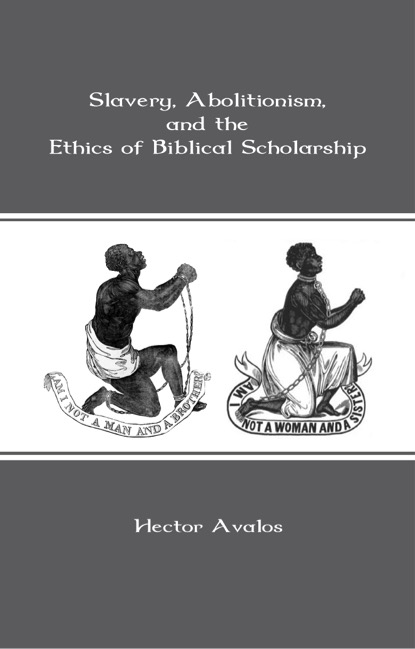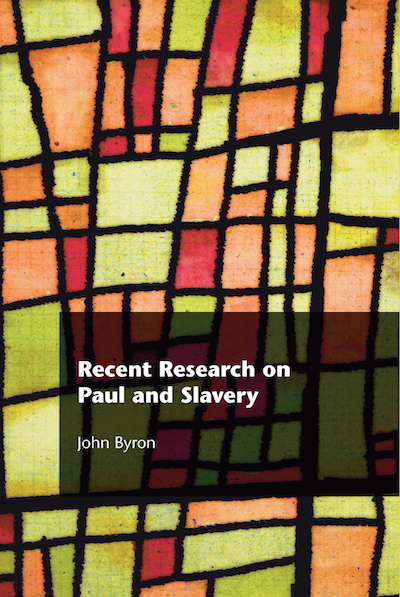Slavery, Abolitionism, and the Ethics of Biblical Scholarship
Published: May 2013
Price range: £19.50 through £70.00
In this immensely wide-ranging and fascinating study, Avalos critiques the common claim that the abolition of slavery was due in large part to the influence of biblical ethics. Such a claim, he argues, is characteristic of a broader phenomenon in biblical scholarship, which focuses on defending, rather than describing, the ethical norms encountered in biblical texts.
The first part of Avalos's critique explores how modern scholars have praised the supposed superiority of biblical ethics at the cost of diminishing or ignoring many similar features in ancient Near Eastern cultures. These features include manumission, fixed terms of service, familial rights, and egalitarian critiques of slavery. At the same time, modern scholarship has used the standard tools of biblical exegesis in order to minimize the ethically negative implications of many biblical references to slavery.
The second part of the book concentrates on how the Bible has been used throughout Christian history both to maintain and to extend slavery. In particular, Avalos offers detailed studies of papal documents used to defend the Church's stance on slavery. Discussions of Gregory of Nyssa, Aquinas and Luther, among others, show that they are not such champions of freedom as they are often portrayed.
Avalos's close readings of the writings of major abolitionists such as Granville Sharp, William Wilberforce and Frederick Douglass show an increasing shift away from using the Bible as a support for abolitionism. Biblical scholars have rarely recognized that pro-slavery advocates could use the Bible just as effectively. According to Avalos, one of the complex mix of factors leading to abolition was the abandonment of the Bible as an ethical authority. The case of the biblical attitude to slavery is just one confirmation of how unsuitable the Bible is as a manual of ethics in the modern world.
Slavery, Abolitionism, and the Ethics of Biblical Scholarship
Price range: £19.50 through £70.00
In this immensely wide-ranging and fascinating study, Avalos critiques the common claim that the abolition of slavery was due in large part to the influence of biblical ethics. Such a claim, he argues, is characteristic of a broader phenomenon in biblical scholarship, which focuses on defending, rather than describing, the ethical norms encountered in biblical texts.
The first part of Avalos's critique explores how modern scholars have praised the supposed superiority of biblical ethics at the cost of diminishing or ignoring many similar features in ancient Near Eastern cultures. These features include manumission, fixed terms of service, familial rights, and egalitarian critiques of slavery. At the same time, modern scholarship has used the standard tools of biblical exegesis in order to minimize the ethically negative implications of many biblical references to slavery.
The second part of the book concentrates on how the Bible has been used throughout Christian history both to maintain and to extend slavery. In particular, Avalos offers detailed studies of papal documents used to defend the Church's stance on slavery. Discussions of Gregory of Nyssa, Aquinas and Luther, among others, show that they are not such champions of freedom as they are often portrayed.
Avalos's close readings of the writings of major abolitionists such as Granville Sharp, William Wilberforce and Frederick Douglass show an increasing shift away from using the Bible as a support for abolitionism. Biblical scholars have rarely recognized that pro-slavery advocates could use the Bible just as effectively. According to Avalos, one of the complex mix of factors leading to abolition was the abandonment of the Bible as an ethical authority. The case of the biblical attitude to slavery is just one confirmation of how unsuitable the Bible is as a manual of ethics in the modern world.
Recent Research on Paul and Slavery
Published: Aug 2008
£45.00
New Testament scholarship and Paul have had a complicated relationship over the question of slavery. For many decades there has been a struggle to reconcile the abolitionist cause with a biblical text that seemingly supports the institution of slavery. Then the more recent discovery of inscriptions and documents referring to slaves in antiquity has added new dimensions to the debate. Furthermore, new interpretative approaches to the New Testament, including social-scientific criticism, rhetorical criticism and postcolonial criticism, have challenged earlier interpretations of Paul's statements about slavery. The issue has even more recently taken on a new shape as descendants of former North American slaves have engaged with the way Paul has been interpreted and used to justify the enslavement of their ancestors.
In this volume, John Byron provides a survey of 200 years of scholarly interpretation of Paul and slavery with a focus on the last 35 years. After a general overview of the history of research, Byron focusses in turn on four specific areas: African-American responses to Paul, Paul's slavery metaphors, the elliptical phrase in 1 Corinthians 7.21, and the letter to Philemon. An epilogue highlights four areas in which scholarship is continuing to change its understanding of ancient slavery and, in consequence, its interpretation of Paul. New Testament students and scholars will find the volume an valuable specialist resource that collects and analyses the most important developments on Paul and slavery.
Recent Research on Paul and Slavery
£45.00
New Testament scholarship and Paul have had a complicated relationship over the question of slavery. For many decades there has been a struggle to reconcile the abolitionist cause with a biblical text that seemingly supports the institution of slavery. Then the more recent discovery of inscriptions and documents referring to slaves in antiquity has added new dimensions to the debate. Furthermore, new interpretative approaches to the New Testament, including social-scientific criticism, rhetorical criticism and postcolonial criticism, have challenged earlier interpretations of Paul's statements about slavery. The issue has even more recently taken on a new shape as descendants of former North American slaves have engaged with the way Paul has been interpreted and used to justify the enslavement of their ancestors.
In this volume, John Byron provides a survey of 200 years of scholarly interpretation of Paul and slavery with a focus on the last 35 years. After a general overview of the history of research, Byron focusses in turn on four specific areas: African-American responses to Paul, Paul's slavery metaphors, the elliptical phrase in 1 Corinthians 7.21, and the letter to Philemon. An epilogue highlights four areas in which scholarship is continuing to change its understanding of ancient slavery and, in consequence, its interpretation of Paul. New Testament students and scholars will find the volume an valuable specialist resource that collects and analyses the most important developments on Paul and slavery.



Philemon
Philemon